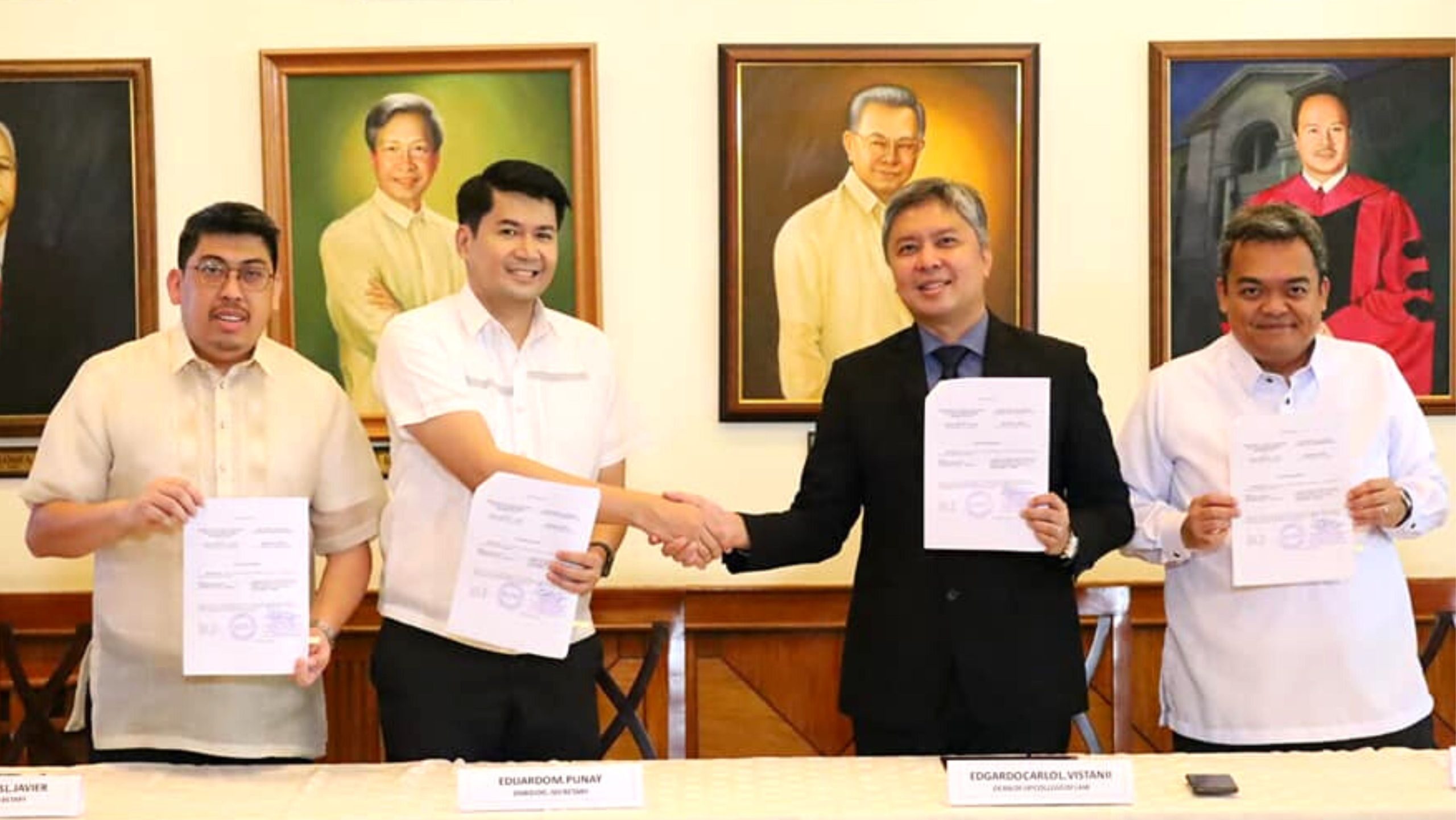
The Department of Social Welfare and Development (DSWD) and the University of the Philippines (UP) Law Center have teamed up to help Filipino children claim assistance from their parents residing abroad.
The signed memorandum of agreement on January 30 seeks to support Filipino children through the implementation of the Convention of 23 November 2007 on the International Recovery of Child Support and Other Forms of Family Maintenance.
“With this Convention in place, we will be able to assist the families to locate, apply, process, and claim child support for the left-behind child or children from his or her foreign parent or Filipino parent residing outside the Philippines,” DSWD officer-in-charge Eduardo Punay said.
The signing was done by Punay UP Law Center Dean Edgardo Carlo Vistan II, and was witnessed by DSWD Undersecretary Jerico Francis Javier and Department of Foreign Affairs Assistant Secretary Roussel Reyes.
“As I also welcome you all to the signing ceremony, allow me to assure you, our colleagues in the DSWD as well as in the DFA, that as we enter into this partnership, we are ready and eager to roll up our sleeves and begin the work with you to ensure that the needs and the best interest of children all over the world are addressed,” Vistan said.
The Convention provides a system of close coordination and cooperation between contracting parties around the world, better access to cross-border maintenance procedures through legal assistance, as well as expedited and simplified recognition, and enforcement procedures.
It will also help in the application for child support, spousal support from foreign parents or spouses, and to recognize and enforce foreign court decisions on assistance.
It will also help Filipino families locate their foreign or Filipino spouses abroad for support claims through the DSWD. Foreign nationals can also ask for the same services if their parents or spouses are in the country.
The UP Law Center will offer assistance on applications requiring legal advice, as well as in obtaining documentary evidence and in enforcing maintenance decisions. – Katrina Gracia Consebido-ag
